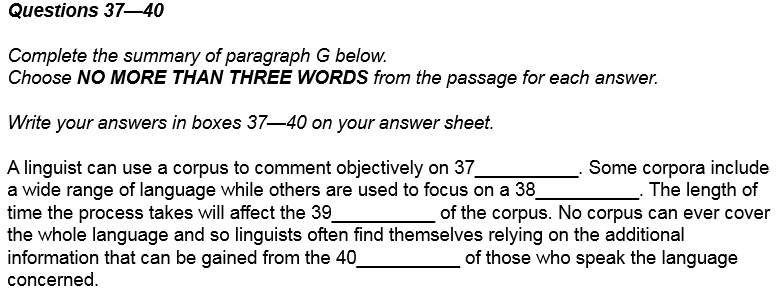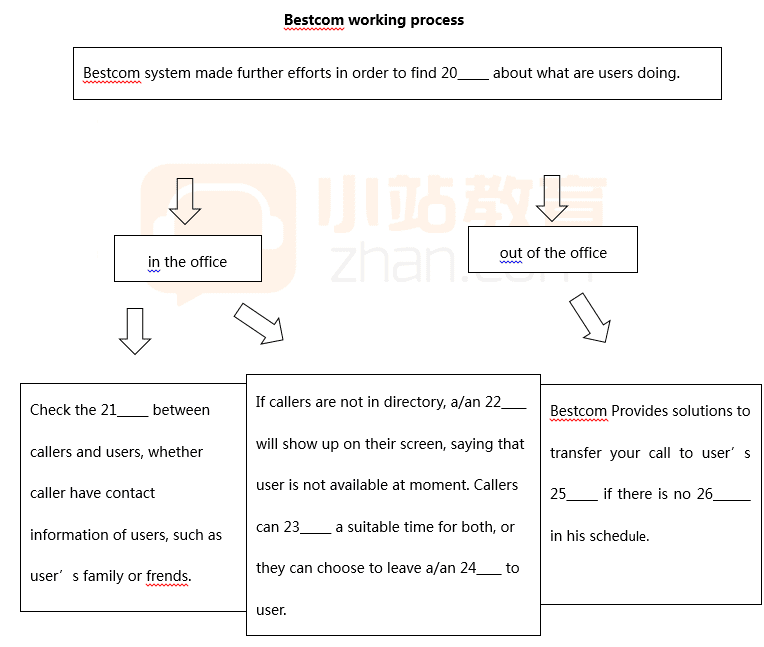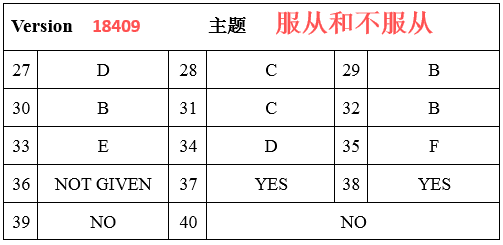很多刚接触托福考试的考生都很不适应托福阅读的快节奏,篇幅很长,时间很紧,题量还不小。下面小编就和大家分享托福阅读文章分析阅读文章难度和出处!来欣赏一下吧。
托福阅读文章分析 阅读文章难度和出处
一. 托福文章选材范围
托福阅读文章的选材范围非常广泛,涉及自然科学、人文科学和社会科学三个方面,其实都是学术性文章。其中自然科学包括:天文学、地质学、生物学、气象学等;人文科学包括:艺术美学、考古学、语言学、文学等;社会科学包括:政治学、经济学、教育学、人类学等交叉学科。
其实,所有托福阅读文章都对考生的知识储备广度有不低的要求,但是也不会是非常深入的涉猎某一个领域,所以,一些常识性的内容一定要知晓。
二. 托福文章出处和文章分析
托福文章大部分出自英国和美国的一些杂志和期刊,另外还包括一些普通期刊或者科普期刊,大家在闲暇的时候可以多看一看这类的报刊杂志,扩充自己的知识量和词汇储备。也能锻炼自己的阅读速度。
我们在文章前面提到过,托福阅读文章大多是学术性文章,其实它们还可以分为三类,分别是说明文、议论文、史实文。文章的逻辑遵循比较固定的机构模式。一般都是总述话题,然后各个方面论述,再表明态度,做阅读时按照这样的方法来看文章,可以很快抓住文章的脉络和逻辑结构。
托福阅读文章是有一定难度的,但是有句话叫“会者不难,难者不会”,所以,只要打好基础,提升阅读速度,一定可以在托福阅读中取得高分。
托福阅读真题原题
The first birds appeared during late Jurassic times. These birds are known from four very good skeletons, two incomplete skeletons, and an isolated feather, all from the Solnhofen limestone of Bavaria, Germany. This fine-grained rock, which is extensively quarried for lithographic stone, was evidently deposited in a shallow coral lagoon of a tropical sea, and flying vertebrates occasionally fell into the water and were buried by the fine limy mud, to be preserved with remarkable detail. In this way, the late Jurassic bird skeletons, which have been named Archaeopteryx, were fossilized. And not only were the bones preserved in these skeletons, but also were imprints of the feathers. If the indications of feathers had not been preserved in association with Archaeopteryx, it is likely that these fossils would have been classified among the dinosaurs, for they show numerous theropod characteristics. Archaeopteryx were animals about the size of a crow, with an archeosaurian type of skull, a long neck, a compact body balanced on a pair of strong hind limbs, and a long tail. The forelimbs were enlarged and obviously functioned as wings.
Modern birds, who are the descendants of these early birds, are highly organized animals, with a constant body temperature and a very high rate of metabolism. In addition, they are remarkable for having evolved extraordinarily complex behavior patterns such as those of nesting and song, and the habit among many species of making long migrations from one continent to another and back each year.
Most birds also have very strong legs, which allow them to run or walk on the ground as well as to fly in the air. Indeed, some of the waterbirds, such as ducks and geese, have the distinction of being able to move around proficiently in the water, on land, and in the air, a range in natural locomotor ability that has never been attained by any other vertebrate.
1. According to the author, all of the following evidence relating to the first birds was found EXCEPT
(A) nesting materials
(B) four skeletons in good condition
(C) two fragmented skeletons
(D) a single feather
2. The word preserved in line 8 is closest in meaning to
(A) confused with others
(B) gradually weakened
(C) protected from destruction
(D) lost permanently
3. It can be inferred from the passage that the Archaeopteryx were classified as birds on the basis
of
(A) imprints of bones
(B) imprints of feathers
(C) the neck structure
(D) skeletons
4. The word they in line 10 refers to
(A) indications
(B) fossils
(C) dinosaurs
(D) characteristics
5. Why does the author mention a crow in line 11?
(A) to indicate the size of Archaeopteryx
(B) To specify the age of the Archaeopteryx fossils
(C) To explain the evolutionary history of Archaeopteryx
(D) To demonstrate the superiority of the theropod to Archaeopteryx
6. It can be inferred from the passage that theropods were
(A) dinosaurs
(B) birds
(C) Archaeopteryx
(D) crows
7. The word constant in line 16 is closest in meaning to
(A) comfortable
(B) combined
(C) consistent
(D) complementary
8. The author mentions all of the following as examples of complex behavior patterns evolved by
birds EXCEPT
(A) migrating
(B) nesting
(C) singing
(D) running
9. The word attained in line 23 is closest in meaning to
(A) required
(B) achieved
(C) observed
(D) merited
PASSAGE 59 ACBBA ACDB
托福阅读真题原题
No two comets ever look identical, but they have basic features in common, one of the most obvious of which is a coma. A coma looks like a misty, patch of light with one or more tails often streaming from it in the direction away from the sun.
At the heart of a comet's coma lies a nucleus of solid material, typically no more than 10 kilometers across. The visible coma is a huge cloud of gas and dust that has escaped from the nucleus, which then surrounds like an extended atmosphere. The coma can extend as far as a million kilometers outward from the nucleus. Around the coma there is often an even larger invisible envelope of hydrogen gas.
The most graphic proof that the grand spectacle of a comet develops from a relatively small and inconspicuous chunk of ice and dust was the close-up image obtained in 1986 by the European Giotto probe of the nucleus of Halley's Comet. It turned out to be a bit like a very dark asteroid, measuring 16 by 8 kilometers. Ices have evaporated from its outer layers to leave a crust of nearly black dust all over the surface. Bright jets of gas from evaporating ice burst out on the side facing the Sun, where the surface gets heated up, carrying dust with them. This is how the coma and the tails are created.
Comets grow tails only when they get warm enough for ice and dust to boil off. As a comet's orbit brings it closer to the sun, first the coma grows, then two distinct tails usually form. One, the less common kind, contains electrically charged (i.e., ionized) atoms of gas, which are blown off directly in the direction away from the Sun by the magnetic field of the solar wind. The other tail is made of neutral dust particles, which get gently pushed back by the pressure of the sunlight itself. Unlike the ion tail, which is straight, the dust tail becomes curved as the particles follow their own orbits around the Sun.
1. The passage focuses on comets primarily in terms of their
(A) orbital patterns
(B) coma and tails
(C) brightness
(D) size
2. The word identical in line 1 is closest in meaning to
(A) equally fast
(B) exactly alike
(C) near each other
(D) invisible
3. The word heart in line 4 is closest in meaning to
(A) center
(B) edge
(C) tail
(D) beginning
4. Why does the author mention the Giotto probe in paragraph 3?
(A) It had a relatively small and inconspicuous nucleus.
(B) It was very similar to an asteroid.
(C) It was covered with an unusual black dust.
(D) It provided visual evidence of the makeup of a comet's nucleus.
5. It can be inferred from the passage that the nucleus of a comet is made up of
(A) dust and gas
(B) ice and dust
(C) hydrogen gas
(D) electrically charged atoms
6. The word graphic in line 9 is closest in meaning to
(A) mathematical
(B) popular
(C) unusual
(D) vivid
7. Which of the following occurred as the ices from Halley's Comet evaporated?
(A) Black dust was left on the comet's surface.
(B) The nucleus of the comet expanded.
(C) The tail of the comet straightened out.
(D) Jets of gas caused the comet to increase its speed.
8. All of the following statements about the tails of comets are true EXCEPT:
(A) They can contain electrically charged or neutral particles.
(B) They can be formed only when there is sufficient heat.
(C) They are formed before the coma expands.
(D) They always point in the direction away from the Sun.
9. The word distinct in line 17 is closest in meaning to
(A) visible
(B) gaseous
(C) separate
(D) new
10. Compared to the tail of electrically charged atoms, the tail of neutral dust particles is
relatively
(A) long
(B) curved
(C) unpredictable
(D) bright
PASSAGE 65 BBADB DACCB








 扫一扫支付
扫一扫支付


